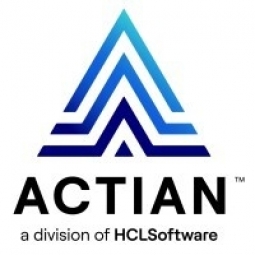Download PDF
Don’t Sing the ORM Blues
Technology Category
- Application Infrastructure & Middleware - Database Management & Storage
Applicable Industries
- Electronics
Applicable Functions
- Product Research & Development
Services
- Software Design & Engineering Services
The Challenge
Sony Creative Software was facing a challenge with their Blu-ray authoring software, Blu-print. The software was built using object-relational mapping (ORM) technology, which was not scaling as required. The production of a Blu-ray disc can involve as many as 200,000 objects, demanding a fast and reliable database capable of handling an equal number of complex object relationships. Additionally, the emerging Blu-ray specification was in flux, and every change to the spec required a corresponding adjustment to the data model and database schema. Whenever a change was required to the data model, a time-consuming process ensued, requiring the export of all data to XML, updating and migrating the schema, and then reimporting the data.
About The Customer
Sony Creative Software is a company that inspires artistic expression with its award-winning line of products for digital video, audio, and music production, as well as industry-leading technology for DVD production and Blu-ray Disc™ authoring. Their products such as Sound Forge™ Pro, ACID™ Pro, and Vegas™ Pro software have defined digital content creation for a generation of creative professionals. They provide the industry-leading tools for enterprise-level Blu-ray Disc™ authoring: Blu-code™ encoder, Blu-print® software, and on-q Create® for Blu-ray Java. Blu-print is used by most major movie studios and post-production services companies in the U.S. Their customers span the globe and include professionals in the film, television, video game, and recording industries, as well as students, educators, and hobbyists.
The Solution
Sony Creative Software selected Versant’s db4o object database to solve their scaling issues. Db4o provided the flexibility to modify the schema as needed. If db4o didn’t understand a new field, it would just skip the new field and continue to load the information. This allowed the application to consume and operate on information it understands, and ignore information it does not, continuing to function until requisite changes are made to the schema. The db4o solution includes a self-contained database, allowing Blu-print users to maintain the database file themselves, and open and close the file or create new ones as needed.
Operational Impact
Quantitative Benefit
Related Case Studies.

Case Study
Remote Temperature Monitoring of Perishable Goods Saves Money
RMONI was facing temperature monitoring challenges in a cold chain business. A cold chain must be established and maintained to ensure goods have been properly refrigerated during every step of the process, making temperature monitoring a critical business function. Manual registration practice can be very costly, labor intensive and prone to mistakes.

Case Study
Cloud Solution for Energy Management Platform-Schneider Electric
Schneider Electric required a cloud solution for its energy management platform to manage high computational operations, which were essential for catering to client requirements. As the business involves storage and analysis of huge amounts of data, the company also needed a convenient and scalable storage solution to facilitate operations efficiently.

Case Study
Leveraging the IoT to Gain a Competitive Edge in International Competition
Many large manufacturers in and outside Japan are competing for larger market share in the same space, expecting a growing demand for projectors in the areas of entertainment, which requires glamor and strong visual performance as well as digital signage that can attract people’s attention. “It is becoming more and more difficult to differentiate ourselves with stand-alone hardware products,” says Kazuyuki Kitagawa, Director of Service & Support at Panasonic AVC Networks. “In order for Panasonic to grow market share and overall business, it is essential for us to develop solutions that deliver significant added value.” Panasonic believes projection failure and quality deterioration should never happen. This is what and has driven them to make their projectors IoT-enabled. More specifically, Panasonic has developed a system that collects data from projectors, visualizes detailed operational statuses, and predicts issues and address them before failure occurs. Their projectors are embedded with a variety of sensors that measure power supply, voltage, video input/ output signals, intake/exhaust air temperatures, cooling fan operations, and light bulb operating time. These sensors have been used to make the projector more intelligent, automatically suspending operation when the temperature rises excessively, and automatically switching light bulbs. Although this was a great first step, Panasonic projectors were still not equipped with any capability to send the data over a network.








